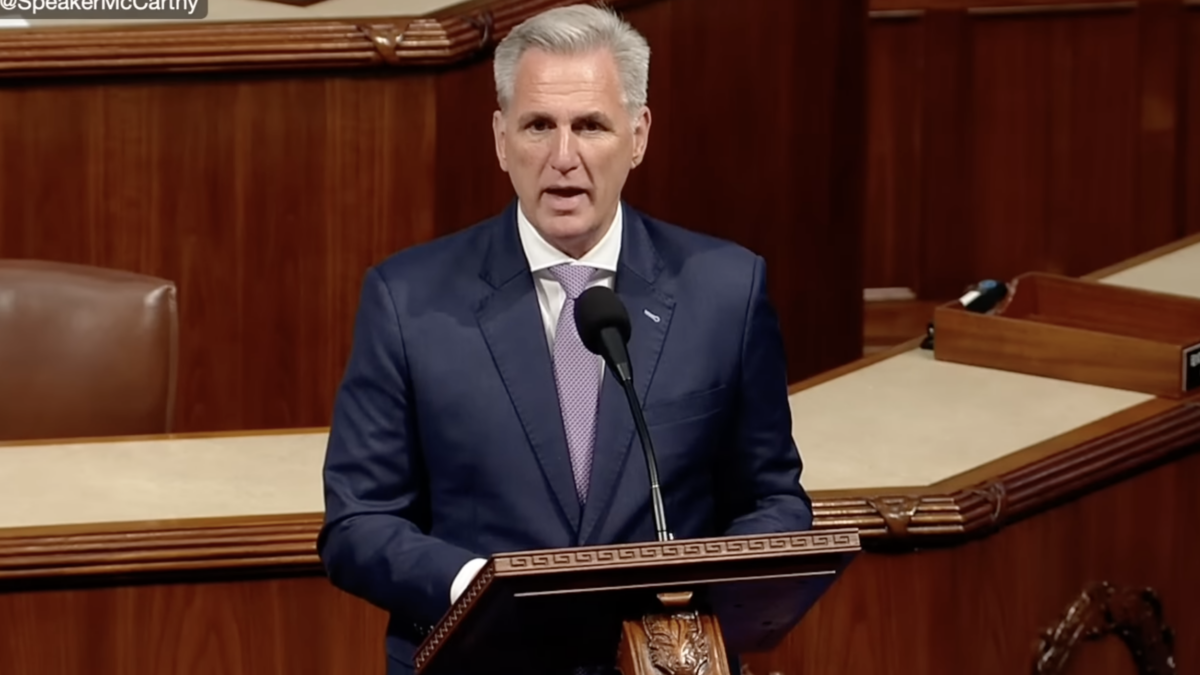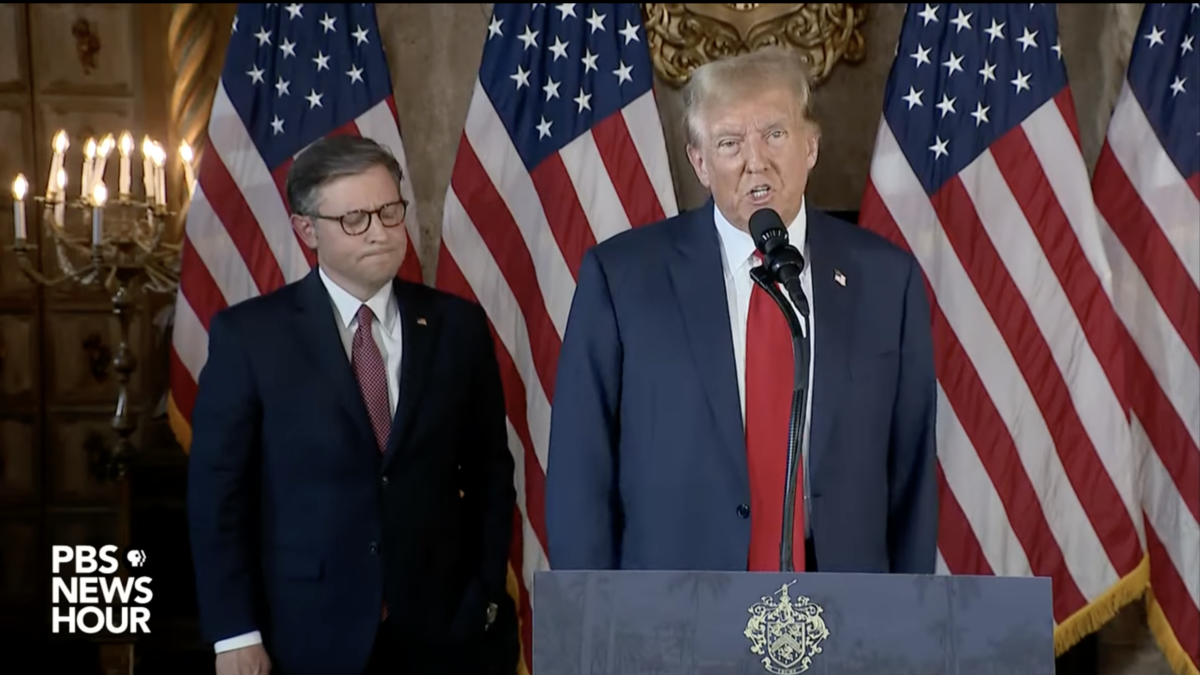Conventional wisdom holds that last week’s vote by the Republican-controlled House of Representatives to approve a debt limit and spending reduction bill is meaningless. Democrats called the legislation dead on arrival in the Senate, making whatever the House decides to do on its own irrelevant.
As with many things in Washington, the corporate media’s conventional wisdom is wrong.
Approving a debt limit bill did more than dispel the narrative that the Republican House, and Speaker Kevin McCarthy, R-Calif., will remain perpetually in disarray. By eliminating one of the major elements of Democrats’ political argument, it raised questions about their own strategic endgame.
House vs. Senate
Under the traditional, “Schoolhouse Rock” version of lawmaking, the House would pass its version of a bill, the Senate would pass its version, and the two would convene a House-Senate conference committee to reconcile the differences between the measures. That outcome seems unlikely regarding this debt limit increase.
Virtually all Democrats support a so-called “clean” debt limit increase. That is, they want to extend the limit on the nation’s credit card without any accompanying spending reforms. (They claim they will discuss spending levels in separate legislation, just not as part of the debt limit.)
But most legislation requires 60 votes to overcome a filibuster and advance in the Senate, and Democrats only hold 51 Senate seats. As a result, Majority Leader Chuck Schumer, D-N.Y., must persuade nine Republicans — 10 if Sen. Dianne Feinstein, D-Calif., who continues to recover from a case of shingles in California, remains absent from the Senate — to approve a clean debt limit increase for the measure to clear the chamber. That scenario appears unlikely, as Minority Leader Mitch McConnell, R-Ky., would lean on his troops not to approve a Schumer-led measure.
Indeed, Schumer may not bring a debt limit bill to the Senate floor at all, rather than wasting precious days of the Senate schedule on a measure he believes will fail. But this strategy would allow members in the lower chamber to ask an obvious question: The House did its work, and approved a debt limit bill — why won’t the Senate do the same?
Republicans Get to ‘Yes’
But amid the larger debate about the debt limit and fiscal policy, a key point about last week’s events has somehow gotten lost. Democrats continue to decry supposed Republican “hostage taking,” alleging that conservative lawmakers are threatening to ruin the country’s full faith and credit unless Democrats acquiesce to their demands.
Ignore for a moment the not-insignificant question of whether the Treasury Department can prioritize government payments in the event Congress doesn’t increase the debt limit, so as to prevent a default on government bonds and protect the country’s credit rating. The Democratic argument in large part rests on the premise that Republican lawmakers would never vote to raise the debt limit.
All the talk about “hostage taking” — which the left has utilized ever since the Republican takeover of the House in 2010-11 turned the debt limit into a bigger political issue — might have merit if lawmakers under no circumstances would vote to increase the debt limit. If there is no possible way someone will vote for a debt limit increase, if a lawmaker’s vote isn’t “gettable,” to use the Beltway parlance, then yes, one might credibly accuse conservatives of wanting to sabotage the country’s credit rating, just to make a point.
That’s where last week’s vote proved revealing, and decisive. Numerous conservative members of Congress, who in the past had never supported legislation that raised the debt limit, voted last week for a bill to do just that. People like my friend and former think-tank colleague Rep. Chip Roy, R-Texas, probably didn’t like the idea of raising the debt limit, but they did it.
After last Wednesday’s vote, Democrats can’t claim conservatives amount to legislative nihilists who can’t get to “yes” on an issue. Instead, they don’t like the fact that Republicans said “yes” to raising the debt limit and “yes” to reforming federal spending. They can no longer attack Republicans for not approving the debt limit, so now they will try to attack Republicans for the way in which they did so.
That position amounts to an attempt to dictate both sides of the debate. It’s the legislative equivalent of a tennis player whining, “You didn’t hit the ball to me the right way.” It holds a particular irony given quotes like the following: “I cannot agree to vote for a full increase in the debt without any assurance that steps will be taken early next year to reduce the alarming increase in the deficits and the debt.”
That quote comes from none other than Joe Biden himself, circa 1984. Given the way in which he and many other Democrats previously supported the notion of linking a debt limit increase to spending reforms, this egregious flip-flop undermines the integrity of their position still further.
Now that Republicans in the House have agreed to a debt limit bill, Democrats should agree to get in a room, figure out each side’s position, and arrive at an agreement that will hopefully increase the debt limit while addressing the nation’s calamitous fiscal state. It’s called “legislating” — Congress actually doing its job.









